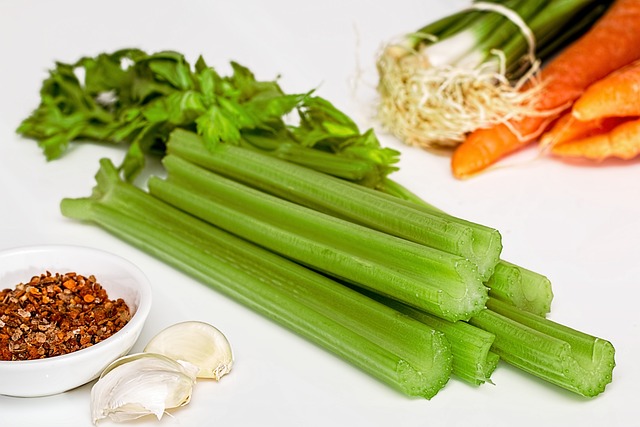In today's eco-conscious world, kitchens are at the forefront of sustainability efforts, with homeowners adopting energy-efficient appliances and sustainable cookware for both environmental and financial benefits. Modern kitchens prioritize aesthetics, efficiency, and eco-friendliness. Professionals in kitchen installations play a vital role by promoting sustainable solutions, including sustainable cookware made from ceramic, stainless steel, or cast iron, which reduces power consumption and carbon footprints. Skilled installers ensure optimal performance and longevity of these products. Commercial kitchens have also embraced sustainable cookware, leading to reduced utility bills and enhanced public image while minimizing their environmental impact.
In today’s eco-conscious world, the kitchen is more than just a space for cooking; it’s a hub for sustainable living. The rise of sustainable cooking embraces energy-efficient products that not only reduce environmental impact but also enhance kitchen performance. This article explores the essential role of sustainable cookware in modern kitchens, delving into various types and their benefits. We discuss the importance of professional installation to ensure optimal performance and longevity, backed by compelling case studies from commercial settings.
- The Rise of Sustainable Cooking: Why Energy-Efficient Products Are Essential for Modern Kitchens
- Types of Energy-Efficient Kitchen Appliances and Their Benefits
- Professional Installation: Ensuring Optimal Performance and Longevity of Eco-Friendly Cookware
- Case Studies: Successful Implementations of Sustainable Cookware in Commercial Kitchens
The Rise of Sustainable Cooking: Why Energy-Efficient Products Are Essential for Modern Kitchens
In today’s eco-conscious world, the kitchen has evolved beyond a mere culinary hub to become a frontline in the battle for sustainability. The rise of sustainable cooking is driven by a growing awareness of environmental impact and a desire to reduce carbon footprints. Energy-efficient products play a pivotal role in this transformation, offering not just environmental benefits but also financial savings for homeowners.
Modern kitchens are no longer defined solely by their aesthetics; they’re expected to be efficient, functional, and eco-friendly. Sustainable cookware and energy-saving appliances are becoming the norm, as folks embrace the concept of reducing waste and consumption. By adopting these innovations, professionals in kitchen installations can contribute to a greener future while catering to clients’ demands for cutting-edge, responsible living spaces.
Types of Energy-Efficient Kitchen Appliances and Their Benefits
Energy-efficient kitchen appliances are designed to reduce power consumption and environmental impact, making them a smart choice for eco-conscious homeowners. Some popular options include sustainable cookware, which is made from materials like ceramic, stainless steel, or cast iron that offer excellent heat retention and distribute it more evenly, thereby reducing energy waste. These types of cookware can lower cooking times and temperatures, leading to significant energy savings.
Other efficient appliances such as water-saving dishwashers, energy-star rated refrigerators with advanced cooling systems, and high-efficiency range hoods not only minimize power usage but also contribute to a healthier kitchen environment by improving air quality. By opting for these products, homeowners can enjoy lower utility bills while promoting sustainability and reducing their carbon footprint.
Professional Installation: Ensuring Optimal Performance and Longevity of Eco-Friendly Cookware
Professional installation plays a pivotal role in unlocking the full potential of sustainable cookware, ensuring it performs at its best while promoting longevity. Skilled installers are equipped to handle intricate details that often come with eco-friendly kitchen products. They understand the nuances of proper fitting, sealing, and alignment, all of which are critical for optimal cooking performance. With their expertise, they can guarantee a seamless integration of these products into existing kitchen infrastructures, ensuring efficient energy utilization.
Moreover, professional installers are trained to recognize and mitigate potential issues that may affect the durability of sustainable cookware. They employ precise techniques to avoid damage during installation, accounting for factors like counter surface conditions and cabinet layouts. By doing so, they not only preserve the integrity of these products but also contribute to a longer lifespan, aligning with the eco-conscious nature of sustainable cookware.
Case Studies: Successful Implementations of Sustainable Cookware in Commercial Kitchens
In recent years, commercial kitchens across various industries have been embracing sustainable cookware as a key component in their operations. Case studies from leading hospitality and food service establishments demonstrate the significant benefits of this shift. For instance, one renowned restaurant group implemented a comprehensive strategy that included using eco-friendly materials for cookware production. This approach not only reduced their carbon footprint but also enhanced the overall kitchen experience for staff, who appreciated the ergonomic design and ease of use.
These successful implementations have set a precedent, inspiring other businesses to follow suit. The adoption of sustainable cookware has been particularly notable in high-volume food service settings, where energy efficiency plays a critical role in cost savings and environmental responsibility. By choosing products crafted from recycled materials or renewable resources, professional kitchens can contribute to a greener future while potentially lowering utility bills and improving their public image.
The shift towards sustainable cooking is not just a trend but a necessary step towards a greener future. By installing energy-efficient kitchen products, professionals can contribute to environmental conservation while offering customers advanced culinary experiences. Sustainable cookware, when professionally installed and maintained, promises longer lifespans and reduced environmental footprints. The case studies presented highlight the successful integration of these eco-friendly solutions in commercial kitchens, proving that going green is both viable and rewarding. As we move forward, embracing energy-efficient technologies will be key to creating sustainable, vibrant, and efficient culinary spaces.
